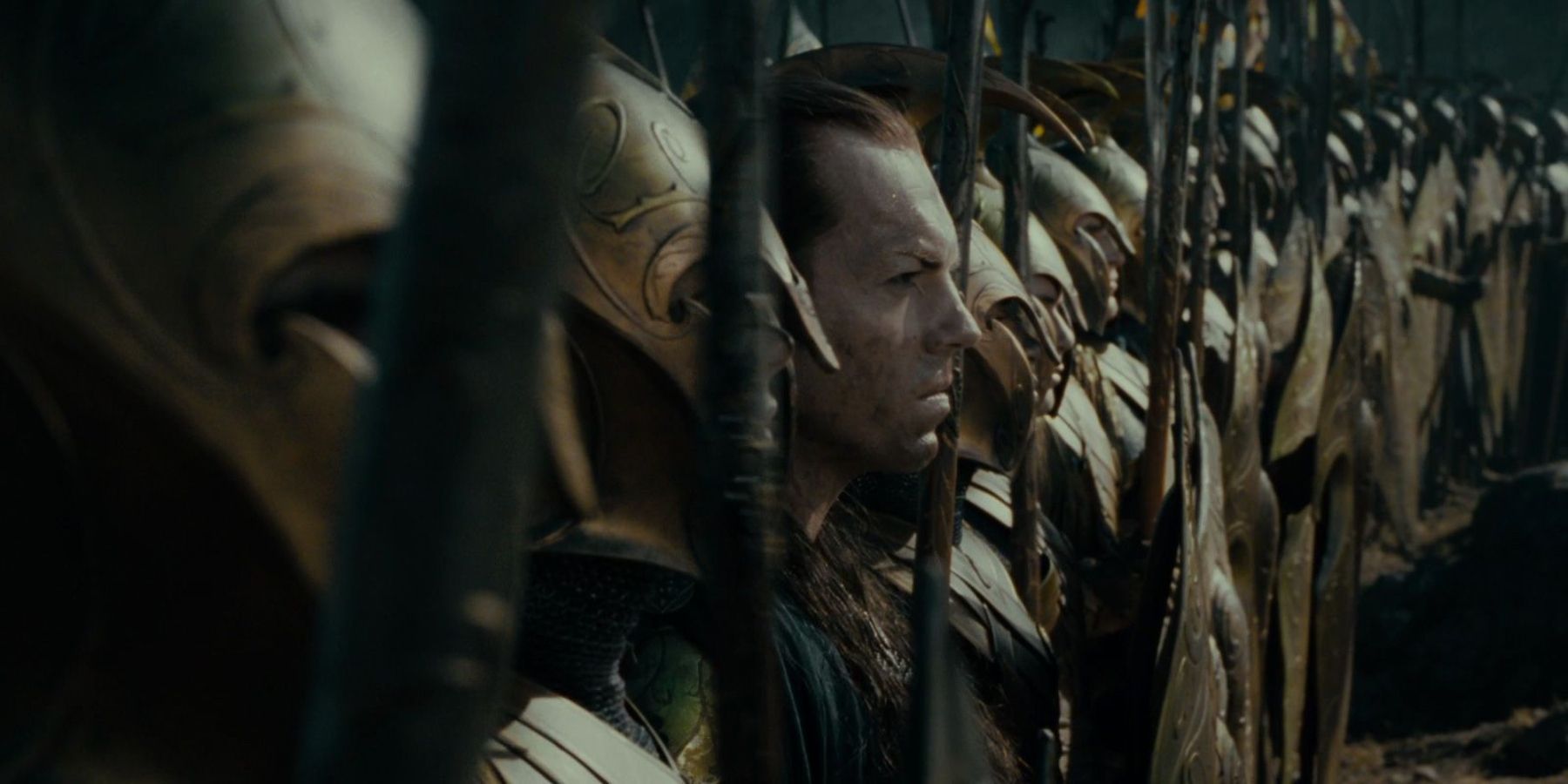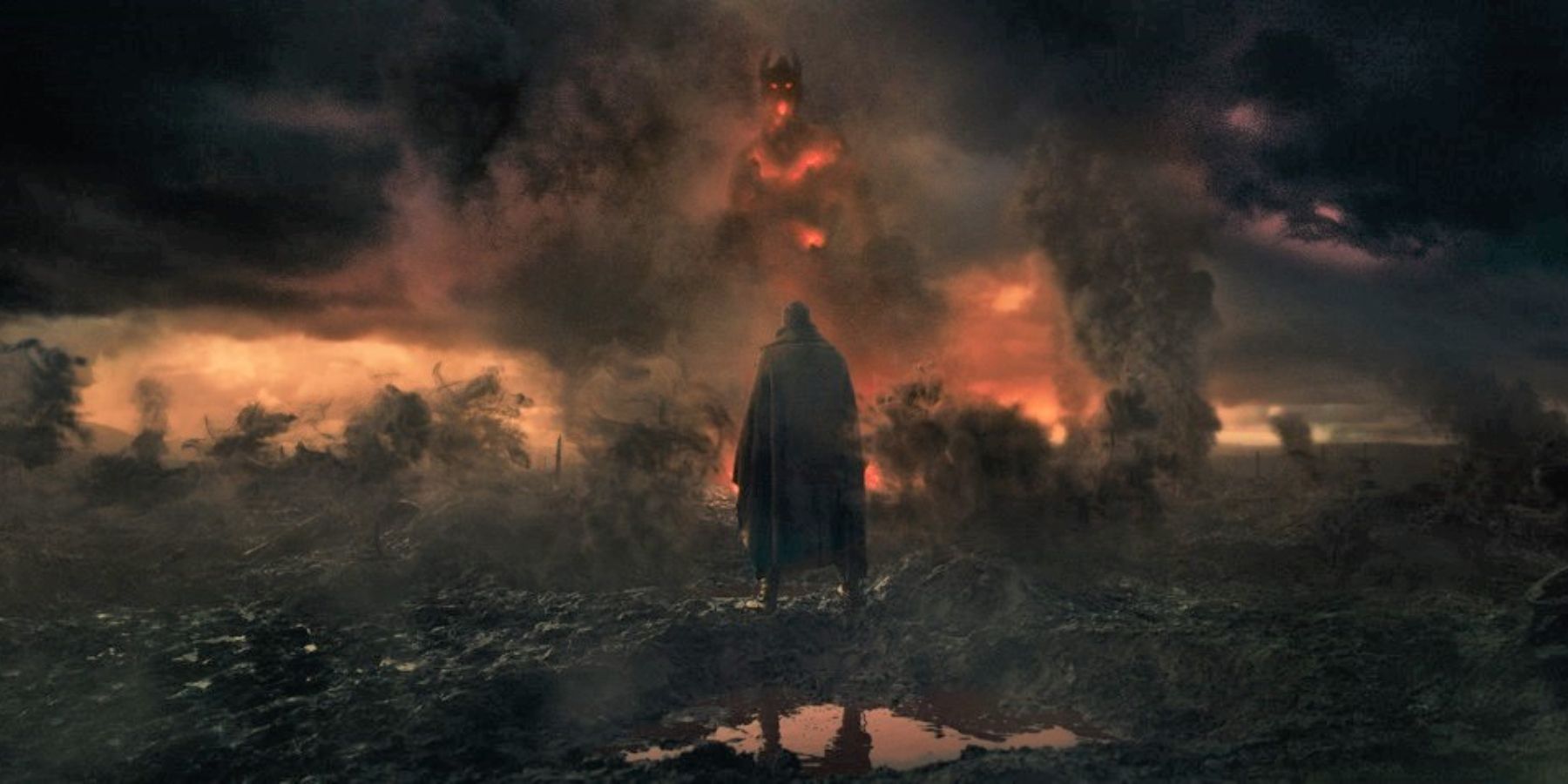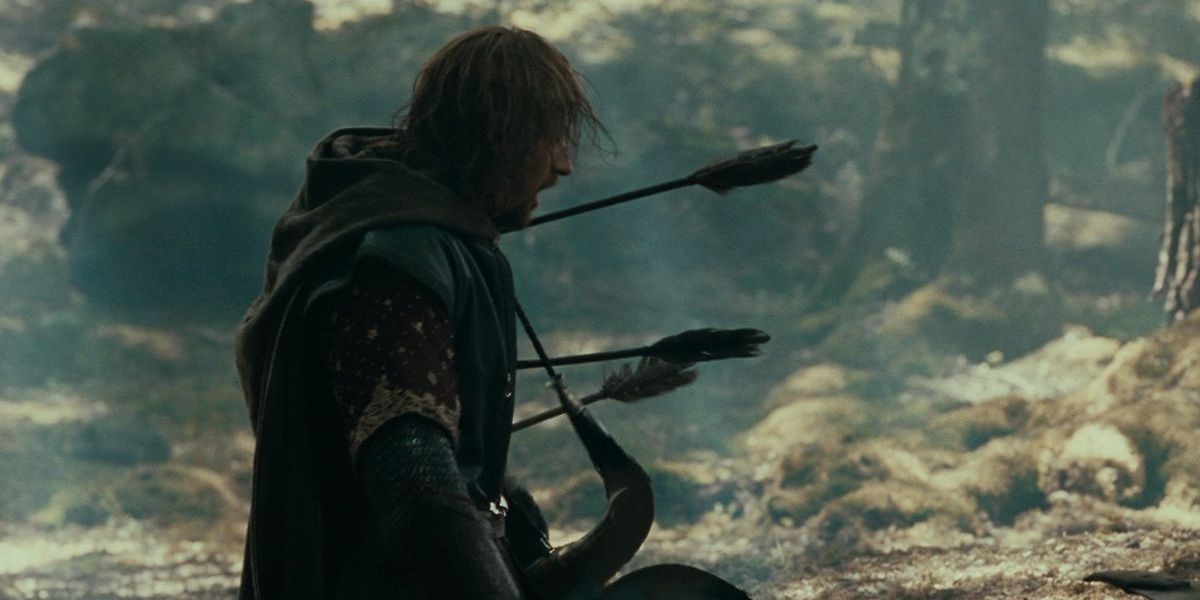By far one of the most dominant themes throughout all of Tolkien's works is war. Throughout all of the ages of Middle Earth, there have been many great battles and terrible fights for power. Tolkien himself was a British Officer in the First World War, and spent time in the trenches before he was removed from his battalion due to a deadly sickness known as ‘Trench Fever.’ But despite the awful experiences he must’ve suffered during his own life, his works portray a very two-sided view of armed conflict.
For example, it is clear that heroism, including being a great warrior, skillful in battle, and deft at wielding a sword are desirable qualities. Aragorn is a key character who demonstrates that valor in battle, and being an accomplished soldier, is of the utmost importance to many races of Middle Earth.
It is thought of to be honorable to serve in the war, and to fight against the enemy. Some may even go as far as arguing that Tolkien presents a glorification of violence within his work, such as when the two members of the fellowship Legolas and Gimli keep a kill-count, scoring how many foes they manage to murder. Of course, this is reasoned within the books as being for a just cause, to protect the freedom of the peoples of Middle Earth from being overtaken by a dark lord, but it is war all the same.
Two other characters who prominently demonstrate this ambiguous portrayal of war in The Lord of the Rings are Eowyn and Faramir, who later meet and fall in love in the houses of healing. Eowyn, who is a shieldmaiden of Rohan, wants nothing more than to go to battle alongside the men, and to gain some kind of status and recognition for her prowess as a fighter. Her greatest fear is being trapped in a cage until ‘All chance of valor has gone beyond recall or desire.’ Similarly, Faramir, the son of Denethor the Steward of Gondor, is desperate for a chance to ‘show his quality’ and prove himself to be as skilled a warrior as his brother Boromir. Both characters perpetuate the idea that war can be noble and condoned.
However, Faramir does later say that 'I do not love the bright sword for its sharpness, nor the arrow for its swiftness, nor the warrior for his glory. I love only that which they defend,’ which suggests there may be other motives behind his need for heroism. Of all of the characters he wrote in his books, Tolkien likened himself most to Faramir, due to this exact trait of feeling duty-bound to fight in a war to protect those he loves, whilst disdaining the thought of unnecessary death.
A major scene in both the books and films that highlights the writer’s feelings of how wasteful and futile great wars can be, is the journey that Frodo and Sam, led by Gollum, take through the Dead Marshes. Here they see lifeless faces in the water, bodies from centuries ago whose souls and spirits haven’t been able to find their way to the resting places of their forebears. The scene is haunting and chilling and intended to show the audience the ugly side of war, which Tolkien himself saw in the trenches.
One of the other most important ways throughout his works that Tolkien shows his disdain for destruction, is in the symbolism of machinery versus nature. Many readers of his work have suggested that the Orc army, especially the Uruk-hai led by Saruman, are symbolic of the age of machinery and industrialization. This is especially shown in the White Wizard's willingness to cut down the trees of Fangorn Forest in order to fuel his forges where his armies are created.
During an extended edition cut of the film adaptation, his spies the Crebain of Dunland fly through the smithy where they are creating evil weapons for the soldiers to wield, and the scene is meant to inspire horror and outrage in the audience as the trees are hewn. The Ent Treebeard represents Tolkien's pain and dismay at the ironization of the world, and this stems from World War one, in which the war was no longer fought on horseback with swords, but had become far more deadly with the use of machine guns and tanks. Tolkien lost several of his men, and indeed two of his closest friends to the rapid-fire of these new automated weapons.
Therefore, it seems to most Tolkien fans that war can only be shown as honorable, if the cause for the battle is worthy and true. In the ancient tale of Beren and Luthien, when Beren asks her father for her hand in marriage, he is told he must prove his might in battle first, which he does, in the name of love. When Boromir dies, he dies to save his friends. Tolkien's most showing sentence of his belief comes in the form of the gentle, yet surprisingly brave and tough when he needs to be, Sam Gamgee, who sums it up perfectly by saying ‘there is some good in this world, and it is worth fighting for.’



